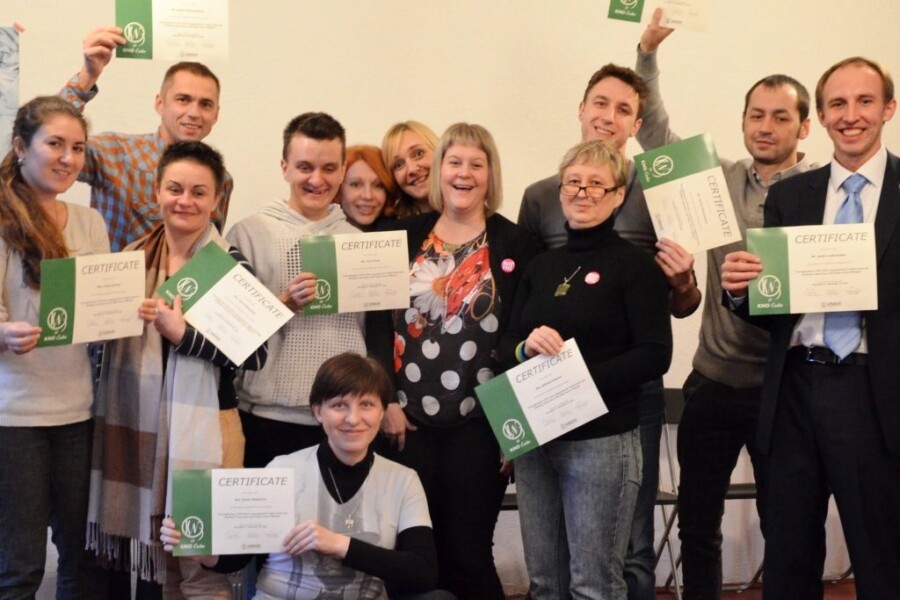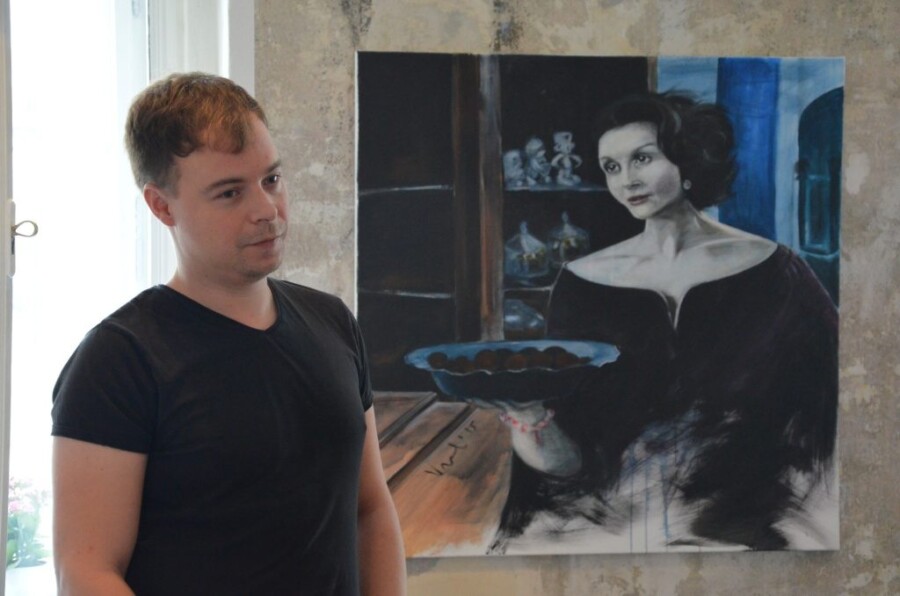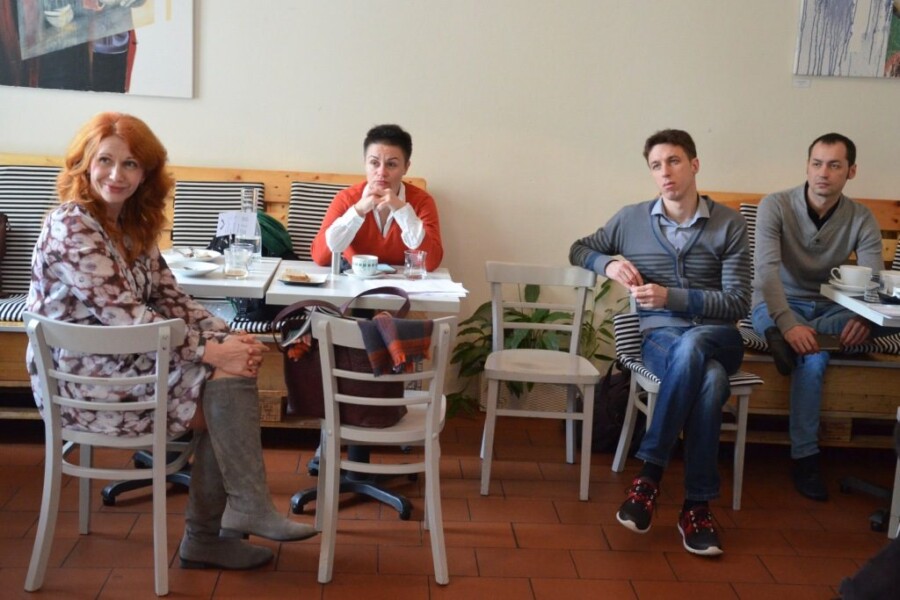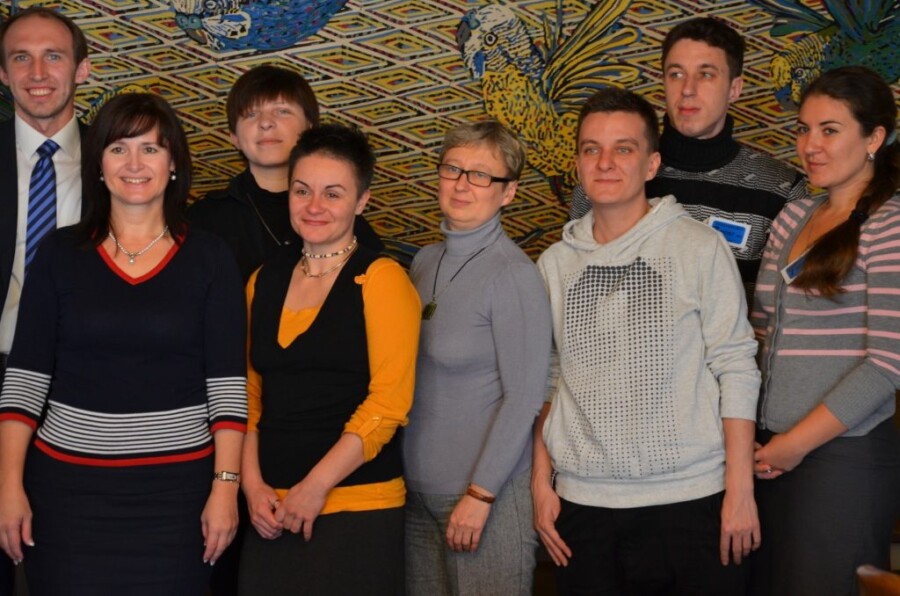How activists were taught to negotiate with authorities on LGBT issues
Meanwhile the Czech Republic continues debating on granting homosexual couples the right to adopt children, Ukraine has only recently banned employment discrimination on grounds of sexual orientation and gender identity (SOGI).
Having passed the anti-discrimination amendment to the Labour Code of Ukraine on November 12, the Parliament of Ukraine hardly for the first time recognized the existence of the LGBT (lesbian, gay, bisexual and transgender people) at the legislative level.
Not everything was so rosy in the Czech Republic in due time. The Czech LGBT activists had sustained defeat five times before the law on registered partnership was passed. The bill had been voted down five times before it was passed in 2006…
During the internship in Prague, the Ukrainian activists found out how the LGBT activists should defend their rights, how to find common language with the authorities, how to respond to discrimination and many other issues. Our journalist, editor-in-chief of the website Iryna Vyrtosu was among the participants.
The program “Strengthening cooperation between the organizations of sexual minorities and improving their dialogue with the public authorities” contained a variety of topics: the history of the LGBT movement in the Czech Republic, the change in public opinion with the help of sexual minorities film festival “Between floors” (Mezipatra), the response of the authorities to the needs of the LGBT community, the Prague Pride secrets of success, the social and psychological needs of people living with HIV, and so on.
Each of ten Ukrainian participants – public activists, government officials, journalists – could find useful information.
“Participation in the program inspired me to pay more attention to the awareness-building efforts with the youth of 10-12 years old to reduce the level of homophobia of the environment and the sexual minorities themselves. On my return from Prague, I plan to organize the training for school psychologists on counseling the LGBT persons. Unfortunately, the Ukrainian psychologists do not yet have the appropriate knowledge and are not able to provide the school students with quality services,” deputy director of the Zaporizhzhia Charity Foundation “Gender Zed “Oleksandr Vytvytsky said.
Ukrainian colleagues should take home the tools of lobbying and influence the government not with protests only, noted chair of Vinnytsia NGO “Informational-Educational Center”, expert of the Coalition for Combating Discrimination in Ukraine Svitlana Dubyna.
“I’m a person of direct activism. But here, in Prague, I’ve made sure that the stories of successful negotiations and lobbying exist. I was struck by the professionalism and thoroughness of the Czech activists in the preparation and promotion of the anti-discrimination legislation,” Svitlana Dubyna said.
The program participant was also amazed by the meeting with co-founder of the Movement for Equality of Homosexual Citizens Jiri Hromada. “Jiri said, ‘We made our contribution. We can go away. There is the struggle of youth ahead.’ This aligned communication between the generations of activists is incredible. This is what we lack,” the expert said.
Serhiy Ponomarev, deputy head of the department for the children’s rights, non-discrimination, and gender equality of the Ombudsperson’s Secretariat, compared the activity of the Czech colleagues with the work of the Ukrainian Office of the Ukrainian Parliament Commissioner for Human Rights.
“First of all, it was interesting to find out that the local ombudsperson pays much attention to research on discrimination issues. This is a practice that should be introduced in our country. At the same time, I noted that we did not limit ourselves to monitoring of human rights violations, and often lobbied the anti-discrimination laws,” said Ponomarev.
The visit of the public activists to Prague coincided with the historical events in Ukraine – the adoption of ten bills within the framework of the Action Plan on Visa Liberalization with the EU. Therefore, during the meeting with the Czech colleagues, the program participants promptly informed about the latest events in Ukraine.
Thus, on the day when the amendment to the Labour Code was passed, the participants had the meeting with the Prague Pride organizers. In particular, vice-president Katerina Saparova and PR manager Bohdana Rambovskova told almost adventurous story about how they had invited Conchita Wurst to the Prague Pride.
“It is very important when such events are supported by the celebrities. People trust them, and this, in turn, helps to destroy the stereotypes about sexual minorities. In Kyiv, the equality march 2015 was publicly supported by MPs Serhiy Leshchenko and Svitlana Zalishchuk, writer Larysa Denysenko, public activist Iryna Slavinska, and others. Is Ms. Wurst next?” vice-president of the NGO “Kharkiv women’s union “Sphere” Hanna Sharyhina shared her impressions.
“After the meeting with the Prague Pride organizers, we suggested making a group photo in support of the Ukrainian LGBT community and Ukraine as a whole. The Czech activists supported us. For us, it was important to support from Prague the activists, who gathered near the Parliament on the day of adoption of important laws,” journalist Iryna Vyrtosy said.
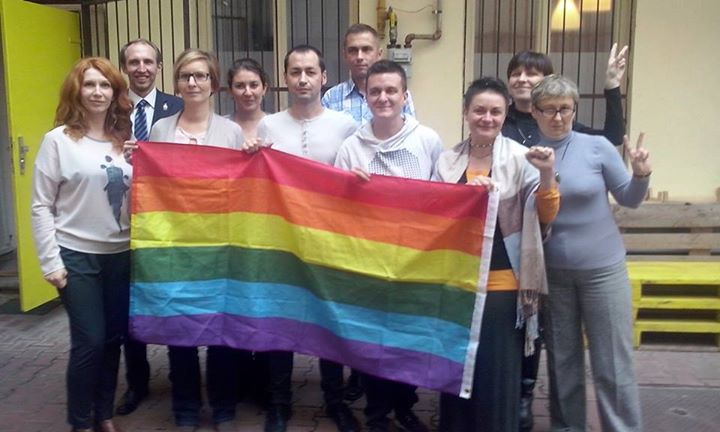
The program “Strengthening cooperation between the organizations of sexual minorities and improving their dialogue with the public authorities” of the project “Training programs for professional growth” of the U.S. Agency for International Development (USAID) was implemented by the KNO (Kelly Novak Opportunities) organization in the Czech Republic. Its program coordinator Petra Černá told that director of the Prague Pride Czeslaw Walek helped to find the contacts of various LGBT organizations.
“We tried to create a high-quality and interesting program for the participants to have the opportunity to learn how the Czech non-governmental organizations operate in the LGBT issue, make contacts, get inspiration for new projects,” Petra Černá commented and added, “Frankly speaking, we feared at first whether we would find a common language with the group as all the participants were very different and their demands for the program were also different. In the end, everything has worked out well!” the co-organizer smiled.
Photo credit: Iryna Vyrtosu, Marketa Fikova
If you have found a spelling error, please, notify us by selecting that text and pressing Ctrl+Enter.

